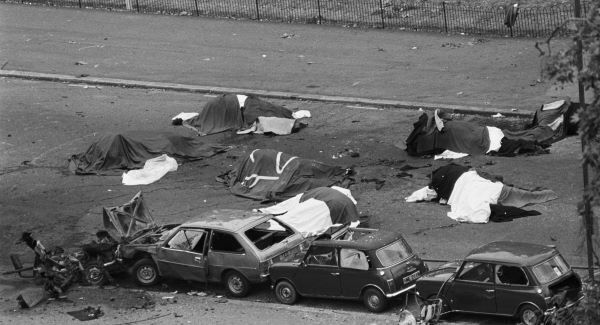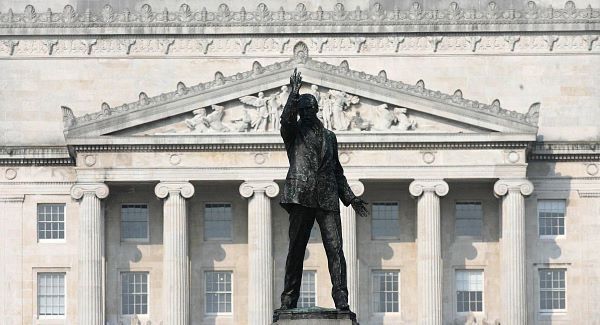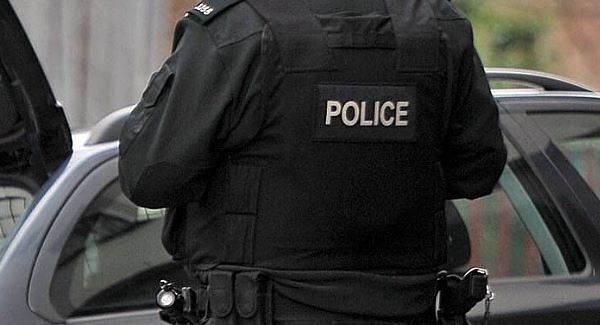On-the-run letters were ’possibly unlawful’, inquiry finds

A British government scheme that issued letters of comfort to on-the-run (OTR) Irish republicans distorted the legal process and may even have been unlawful, a Westminster inquiry has found.
An investigation by the Northern Ireland Affairs Committee heavily criticised the operation of the administrative process that saw almost 190 individuals obtain a document assuring them they could return to the UK - inlcuding the North - without fear of arrest.
The little-known mechanism, which was set up in 2000 and ran for around 12 years, was propelled into the public domain last year when the prosecution of Co Donegal man John Downey for murdering four soldiers in the IRA’s Hyde Park bombing collapsed because it emerged he had been sent one of the letters in error, when in fact police in London were actively seeking him.
A judge-led review of the OTR scheme, ordered by the Government in the wake of the court judgement, concluded last July that a “catastrophic” error had been made in the Downey case. But while Lady Justice Heather Hallett’s probe found the scheme was systematically flawed in operation, she said it was not unlawful in principle.

The select committee’s separate inquiry, published today, is less certain about its legality.
The report stated: “It is questionable whether the ”on-the-runs“ (OTR) scheme was lawful or not, but we believe its existence distorted the legal process. We accept that there was a difficult peace process going on at the time, but believe that there still has to be transparency and accountability in government and in the legal process.”

The committee, which took evidence from 55 witnesses, including former Prime Minister Tony Blair, was also critical of the state’s decision not to appeal the Downey judgement last February, expressing concern the judge’s stay on the prosecution had placed preserving the integrity of the criminal justice system above the public interest involved in continuing the trial of someone accused of carrying out multiple murders.
The 14 committee members also branded as “wholly unacceptable” the UK Government’s refusal – on security and legal grounds – to published the names of all those in receipt of OTR letters, and also those who obtained Royal Prerogatives of Mercy during the peace process.
Committee chair Laurence Robertson MP said: “If any scheme had been put in place at all, which is questionable, it should have been properly introduced and correctly administered. It also should have been open and transparent. This scheme was none of those things.
“Regardless of the intentions, this scheme has caused further hurt to people who have suffered far too much already, and has led to further suspicions being raised.”

The OTR scheme was established by Mr Blair’s Labour government in response to lobbying from Sinn Féin, which stressed its importance in shoring-up republican support for the peace process.
Names of individuals were passed to the Government, the majority through Sinn Féin. The names were then handed to police and prosecutors to assess their status. A report on each individual, some of whom were Sinn Féin members, was sent back to the Government and, if they were declared as not being wanted, a letter of assurance was then issued to the individuals.
In total, 228 individuals applied for letters of comfort, with 187 successful in obtaining one. In the unsuccessful cases, the authorities decided there was sufficient evidence against the individual to arrest them if they returned to the UK.
Last February, Old Bailey trial judge Mr Justice Sweeney found that Downey’s arrest at Gatwick Airport in 2013, when he had been told he was free to return to the UK, represented an abuse of process – not that the letter conferred immunity from prosecution.
Downey, 63, has denied involvement in the 1982 attack. The Police Service of Northern Ireland (PSNI) was heavily criticised in the wake of the judgement as an evidence report it compiled on Downey, which the Government used to determine whether to issue the letter, had not stated he was being sought by the Metropolitan police.
Northern Ireland Secretary Theresa Villiers and a number of her predecessors, both Labour and Conservative, told committee hearings the letters were merely factual statements, reflecting the evidential situation at a point in time, and did not confer immunity in circumstances where new evidence came to light.
Following the Hallett report, the Government announced that it was no longer prepared to stand over even the factual accuracy of the letters, given the error in evidence assessment in Downey’s case, and warned recipients they should no longer draw comfort from them.
The PSNI is reviewing the evidence in all 228 applicants made under the scheme to explore whether other errors have been made.
Lady Justice Hallett identified two instances where mistakes had been made and one of those – the issuing of a letter to a man suspected of involvement in the murder of Co Armagh father-of-two Gareth O’Connor in 2003 – has already seen Mr O’Connor’s inquest halted in dramatic fashion earlier this year.

The PSNI’s review – codename Operation Redfield – had initially been expected to take three years but that timeline has been significantly stretched due to budget cuts.
In her inquiry, Lady Justice Hallett also made reference to 36 individuals who were deemed to be “wanted” in one police assessment but were later reclassified as “not wanted” in a later assessment by the PSNI.
Operation Redfield is currently prioritising the reviews of those 36 cases. A senior PSNI officer told one of the committee’s 26 evidence sessions that 95 receipts of letters were linked, by intelligence evidence only, to 295 murders committed during the Troubles.
The select committee decided to hold its own investigation after expressing concerns that Lady Justice Hallett’s review was too narrow in remit and was not conducted in public.
While Sinn Féin contributed to the judge-led review, it refused to appear before the committee – a stance criticised in its report.
The committee includes five MPs from Northern Ireland. As Sinn Féin does not take seats in Westminster, the party is not represented on the committee.
• The scheme should never have taken place in the manner in which it was developed and run.
• If it existed at all, it should have been formalised within the various agencies involved with clear lines of reporting and accountabilities, and made public.
• The Government should set its mind to ensuring that all necessary steps are taken, including, if necessary, introducing legislation to ensure the letters have no legal effect.
• The judgement in the Downey case served to highlight the inherent risk in the design and subsequent operation of the scheme, and it is regrettable that neither the judge nor the prosecution sought witness statements on the nature of the OTR scheme from other parties.
• The work of Operation Redfield needs to be separated out from the wider work around historic investigations in the North and the Government should commit the funds to ensure the review of the names of all those who received letters is undertaken swiftly.
• The secrecy of the scheme meant that an aggrieved person has been denied the opportunity to have a decision made by a Minister quashed in judicial review proceedings.
• The availability of the scheme to only one section of the community, and even then only effectively at the whim of one political party, raises questions about equality rules in the North.
• There is a lack of clarity around what “new evidence” would be required for a prosecution to be brought against a recipient of one of the letters.
Mr Robertson concluded: “It is therefore very important that Operation Redfield is concluded as quickly as possible and that the Government ensures that no letter provides a shield from prosecution ever again. That is the least people can expect, and is the minimum our committee requires.”












